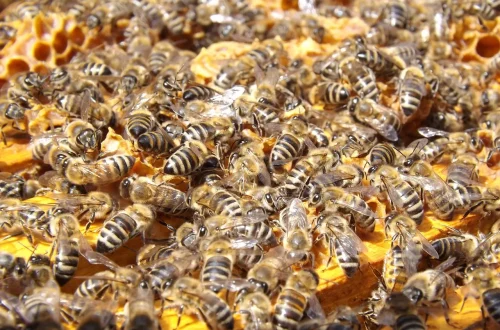-
Effective Anti-Inflammatory Solutions for Horses’ Health and Comfort
Inflammation is a natural response within the body, playing a crucial role in the healing process. However, when it becomes chronic, it can lead to discomfort and various health issues, particularly in horses. These majestic animals, often used for work, leisure, and sport, may experience inflammatory conditions that can affect their overall well-being and performance. Recognizing the signs of inflammation and understanding effective solutions to manage it can significantly improve a horse’s quality of life. In the equine world, inflammation can stem from various sources, including injuries, infections, and even diet. As caretakers, it is essential to be aware of the multiple strategies available to combat inflammation and promote healing.…
-
Understanding Dog Barrel Chest: Causes, Breeds, and Care Tips
Understanding dog barrel chest is an essential topic for dog owners and enthusiasts alike. This physical characteristic is often seen in various breeds, and while it may seem merely aesthetic, it can have significant implications for a dog’s health and overall well-being. The barrel-shaped chest is not just a trait; it reflects how a dog’s body is built, influencing their breathing, stamina, and susceptibility to certain health conditions. In many cases, dogs with a barrel chest are bred for specific purposes, such as hunting or herding, where their physical attributes can enhance their performance. However, understanding the underlying causes of this body structure, the breeds that typically exhibit it, and…
-
Understanding Heavy Breathing in Cats: Causes and Solutions
Heavy breathing in cats can be a concerning symptom for pet owners, often leading to anxiety and questions about the health of their feline companions. Unlike humans, cats have a unique respiratory system, and their breathing patterns can vary significantly depending on a multitude of factors. While cats are generally agile and stealthy creatures, any noticeable change in their breathing can indicate underlying health issues that may require attention. Understanding the complexities of a cat’s respiratory function is essential for identifying potential problems early on. Various elements, including environmental factors, stress, and health conditions, can influence how a cat breathes. As a responsible cat owner, being alert to these changes…
-
Understanding Giardia in Dogs: Identifying Symptoms Through Poop Pictures
Giardia is a microscopic parasite that can infect dogs, leading to gastrointestinal distress and a range of unpleasant symptoms. This parasite is particularly concerning for pet owners, as it can easily spread and cause significant health issues if not properly managed. Understanding Giardia in dogs is crucial for early detection and effective treatment. The presence of Giardia in a dog’s system can lead to an array of digestive problems, which can be alarming for both the pet and the owner. Diarrhea, weight loss, and lethargy are common signs that your furry friend may be suffering from this infection. However, what makes this parasite particularly challenging to diagnose is that the…
-
Understanding Rapid Dog Breathing: Causes and When to Worry
Rapid breathing in dogs can often be alarming for pet owners, especially when it occurs suddenly or without an apparent cause. While dogs may breathe quickly for various reasons, understanding the context and the accompanying symptoms is crucial for determining whether the situation is serious. Rapid breathing, known as tachypnea, can be a normal response to excitement, exertion, or heat, but it can also signal underlying health issues that may require immediate attention. As a responsible pet owner, it is essential to observe your dog’s behavior closely and recognize when rapid breathing becomes a cause for concern. Knowing how to differentiate between normal variations in breathing and signs of distress…
-
Understanding Allergic Reactions to Grass in Dogs: Symptoms and Solutions
Allergic reactions in dogs can be a perplexing and distressing experience for both the pet and the owner. As beloved companions, dogs are often exposed to various environmental elements that can trigger allergic responses. One common source of allergens is grass, which can lead to a range of uncomfortable symptoms. Many dog owners may not realize that their pets can develop sensitivities to grass, and this can manifest in various ways, from skin irritations to respiratory issues. Understanding the underlying causes, symptoms, and treatment options for grass allergies in dogs is essential for ensuring their well-being. While some dogs may only exhibit mild signs of irritation, others can have more…
-
Caring for Your French Bulldog’s Teeth: Tips for a Healthy Smile
Taking care of your French Bulldog’s teeth is essential for their overall health and well-being. These lovable companions are known for their charming personalities, but they can also be prone to specific dental issues. Just like humans, dogs require regular dental care to prevent problems such as gum disease, tooth decay, and bad breath. Unfortunately, many pet owners underestimate the importance of dental hygiene for their furry friends, leading to potential health complications down the line. French Bulldogs, with their unique facial structure, are particularly susceptible to dental problems. Their short snouts can result in overcrowded teeth, which can trap food particles and plaque, creating an environment conducive to bacteria…
-
Understanding Why Your Dog’s Back Legs May Not Be Working
Understanding why a dog’s back legs may not be functioning properly can be a distressing experience for any pet owner. Dogs are not just our companions; they are family members, and witnessing them struggle with mobility can evoke deep emotional responses. Various factors can contribute to this condition, ranging from age-related issues to more serious medical concerns. It’s crucial for pet owners to understand the complexities surrounding their dog’s health and mobility. The back legs of a dog play a vital role not only in movement but also in maintaining balance and stability. When these legs fail to perform as expected, it can significantly affect a dog’s quality of life.…
-
Essential Liver Support for Dogs: Tips for Optimal Health
The liver is one of the most vital organs in a dog’s body, playing a crucial role in various metabolic processes, detoxification, and overall health. It is responsible for filtering toxins from the blood, producing essential proteins, and aiding in digestion through bile production. Given the liver’s importance, ensuring its optimal function is paramount for the well-being of our canine companions. Just like humans, dogs can suffer from liver issues, which can lead to severe health complications if not managed effectively. Factors such as poor diet, exposure to toxins, infections, and genetic predisposition can all contribute to liver problems in dogs. As pet owners, we often overlook the significance of…
-
Understanding Why Your Old Dog Is Drinking Excessive Water
As our beloved canine companions age, we often observe a range of changes in their behavior and health. One of the most noticeable shifts can be an increase in thirst, leading to excessive drinking. This phenomenon can be concerning for pet owners, as it may indicate underlying health issues. Dogs, like humans, have unique hydration needs that can fluctuate due to various factors including age, activity level, and overall health. Understanding the reasons behind an old dog’s increased thirst is essential for any pet owner. It not only helps in managing their daily care but also ensures that you can provide the best possible quality of life for your furry…






































